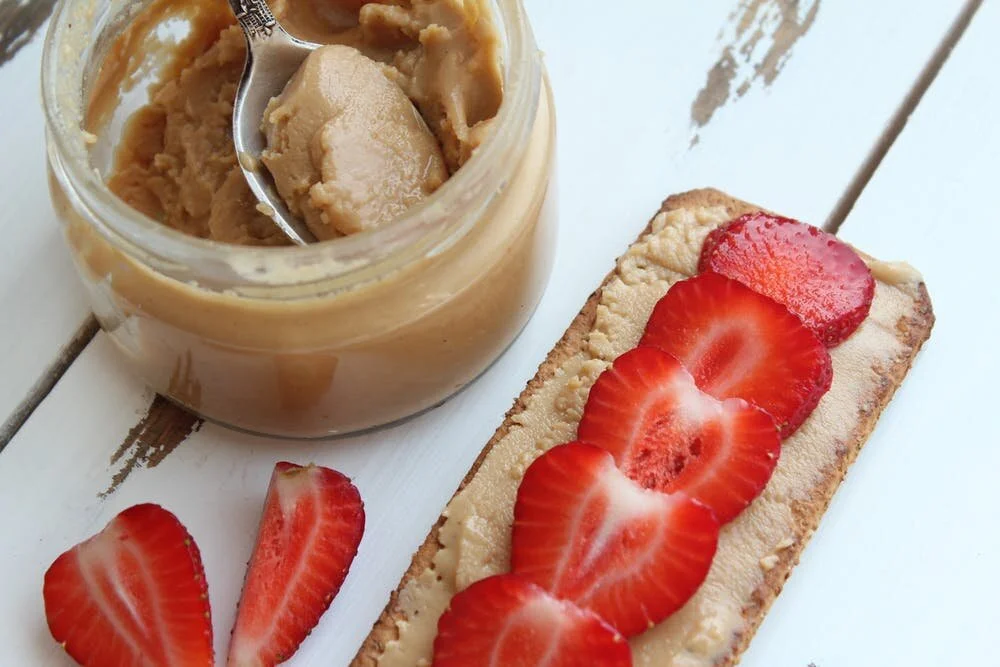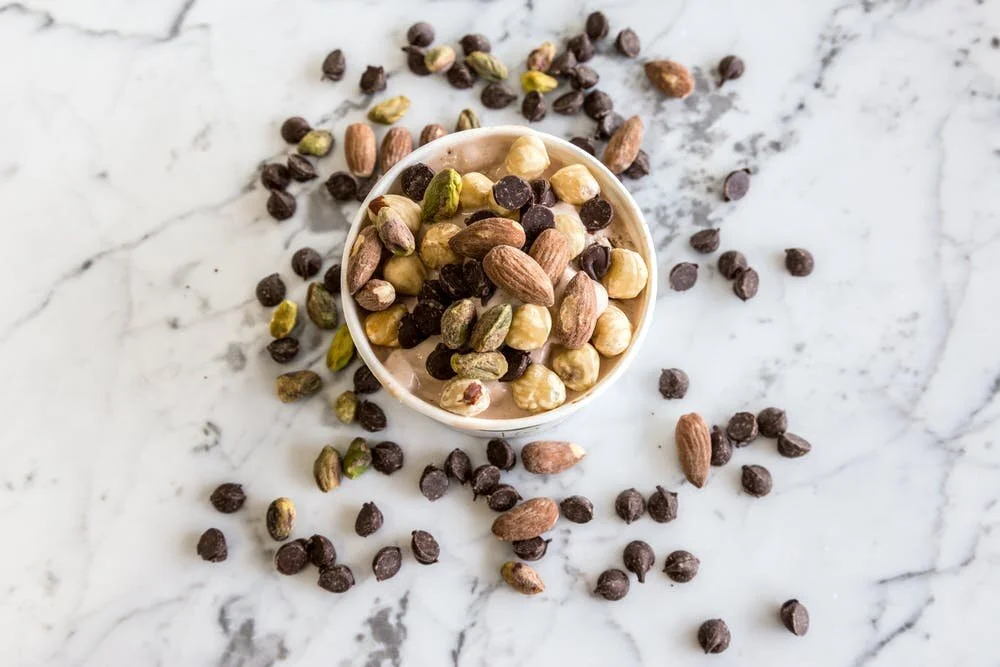I’ve written about the benefits of following a vegan diet, or even better yet for most people, a plant-rich diet (not necessarily 100% vegan but mostly, ex. 70-80% vegan), focusing on nutrient-dense foods, lots of veggies, not too much carbs, and making sure to eat sufficient protein at each meal.
Many people don’t realize this, but there are tons of awesome plant-based sources of protein, rich in nutrients and fiber (and easier to digest than animal proteins) that are important to be including in our diet. Even if you’re not vegan, it’s important to mix up your protein sources and eat some of these plant-based proteins.
Plant-based proteins have a myriad of benefits, and I highly suggest that everyone start to include a few plant-based meals a week (ex. try doing “Meatless Mondays”), focusing on having BALANCED, nutritious meals with at least one source of protein at each meal.
Note: sometimes one single food item isn’t a complete protein, but when you combine it with other vegan proteins, it’s the combination that makes for an excellent source of protein. Some examples of combinations that are very high in protein include brown rice and beans, quinoa and lentils, kale, broccoli and chickpeas, and chia seed pudding with topping of hemp seeds & nut butter – just to name a few.
Here are 10 of my favorite plant-based sources of protein:
1. HEMP SEEDS: These little seeds contain all nine essential amino acids (making them a “complete protein” and just 3 tablespoons provide 10 g of protein! plus they’re a great source of omega-3 fatty acids, and easy to digest. I add them to smoothies and smoothie bowls, salads, soups and often to dips/sauces. I LOVE them and highly recommend them to anyone looking to add more easy-to-digest and low carb plant-based protein to their meals. (Note: I also LOVE pumpkin, sunflower and chia seeds as a close second to hemp seeds, as they contain slightly less protein)
2. LENTILS (all varieties - brown, green and red): just ½ cup of cooked lentils has about 9-10 grams of protein, plus they have tons of fiber, iron, folate and phytonutrients. They’re my favorite of the legumes because, as they’re small, they tend to be the most digestion-friendly of the legumes (won’t cause gas as easily as larger beans). Try adding ½ cup per person to soups, curries, tacos or salads. Try my lentil soup or my lentil vegan burgers.
3. CHICKPEAS (aka garbanzos) are another favorite of mine as they’re so versatile and delicious, packing in 7-8 grams of protein per ½ cup cooked. They’re also rich in fiber, folate, iron and healthy fatty acids. I have them every week, and use them to make hummus, falafel or just baked crispy with spices to add to any vegan macro bowl.
4. TEMPEH: Made from soybeans that are fermented and pressed into a block, tempeh is high in protein, prebiotics and other nutrients. Because it’s more compact than tofu, it’s higher in protein, and because its generally better for our digestion as its fermented. A 3-ounce serving will give you 15 to 16 grams of protein! Tempeh’s firm but chewy texture makes it a perfect addition to veggie bowls, stir-fries and salads. I personally am obsessed with tempeh and bring it from Whole Foods to Nicaragua every time I travel!
5. NUTS: I love ALL nuts but my favorites are walnuts, cashews and almonds. On average, ¼ cup of nuts have 5-7 grams of protein, plus they’re a great source of heart-healthy unsaturated fats, and taste amazing. Just a handful can be filling and the perfect snack. I consume them daily, as toppings for my smoothie bowls, oats, in my energy balls, homemade granola, homemade trail mix, and mostly in the form of almond butter and cashew butter.
6. QUINOA: My favorite “grain” as its technically a seed, so again easier to digest than most other grains and like hemp seeds, contains all 9 essential amino acids making it a complete protein. I still like to keep my portions small to keep my carb intake lower, so recommend only ½ cup per serving, which contains almost 5 grams of protein (a full cup which is what most people consume contains about 9 grams). Quinoa goes well with… everything 😉.
7. BEANS (all varieties, black, white, pinto): On average ½ cup of beans pack in 6 to 9 grams of protein (plus 6 to 8 grams of fiber to keep you full). Beans also help to lower cholesterol and promote healthy gut bacteria. Note: many beans can be a bit difficult to digest, so I always recommend buying them dry and soaking them for 8-12 hours before cooking, changing the water every 4-5 hours. Just like lentils and chickpeas, they can be added to any salad or macro bowl, or used to make veggie burgers. My favorite are black bean burgers.
8. PEANUT BUTTER: Peanuts contain the most protein out of all the nuts (well, peanuts are technically a legume) with about 9 grams protein in just ¼ cup. I use it for my energy balls, my homemade granola bars, in my smoothies or just a tablespoon here and there. That being said, my favorite butters are almond butter, cashew butter and sunflower seed butter.
9. EDAMAME: These lightly boiled or steamed soybeans — often served still in their shell — make a great snack or appetizer. One cup of edamame (not in its shell) packs 18 grams of protein – and is a complete protein (provides all the amino acids your body needs but can’t make on its own). Edamame is a delicious pre-dinner snack/appetizer, and goes well in most macro bowls.
10. NUTRITIONAL YEAST: The secret ingredient in my vegan “cheeses”, nutritional yeast is a great source of protein and B vitamins. Just 2 tablespoons sprinkled on top of your meal adds 4 grams of protein! Apart from using it to make vegan cheese, you can add it to sauces, soups, sprinkle on avo-toast, any pasta or even homemade chips or popcorn. I use it every week to make Kale Chips.






